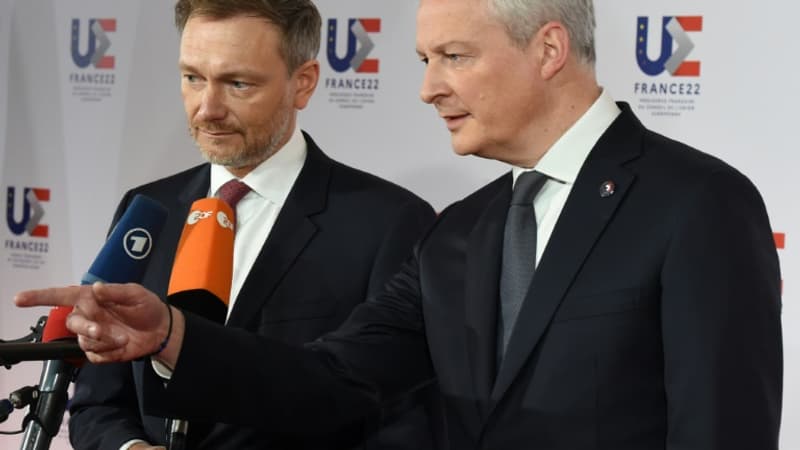Germany annoyed some EU partners on Tuesday by demanding the modification of a text that, however, it had approved on the proposal to reform the Stability Pact presented in November by the European Commission. The first European power had already caused anger in early March by blocking a key text of the EU climate plan on CO2 emissions from cars that it had also already approved, in defiance of European consensus procedures.
After fearing a new obstruction by Berlin, the EU finance ministers, meeting in Brussels, finally managed to validate this Tuesday a text that paves the way for a reform of the Stability Pact that limits the deficit of the public administrations of the Member States at 3% of gross national product and public debt at 60% of GDP.
Fear of abandoning a common rule
But the German minister, Christian Lindner, demanded and obtained a modification of the text of the conclusions that had been approved by all the Twenty-seven the previous week at ambassadorial level. This change consists of requiring the Commission to consult the Member States again before being able to put on the table a legislative proposal for this reform, explained, during a press conference, the Swedish minister Elisabeth Svantesson, whose country holds the Presidency of the Council of the United States.
Christian Lindner, who believes that the German positions have not been sufficiently taken into account, thus intends to ensure blocking power.
In order to promote investment, the Commission’s reform plan aims to give States greater room for maneuver in their budgetary adjustment, taking into account their particular situation. Berlin fears that the rate of deleveraging will end up “being left to the discretion of each one” which would mean the abandonment of a common rule.
No proposal submission for a month
These additional discussions could delay the reform. Valdis Dombrovskis, who hoped in February that the Commission could make its legislative proposal “at the end of March or in the first half of April”, did not communicate a date this Tuesday. According to a European source, the objective would be to present the proposal “in the second half of April.” This will have to be negotiated later by the Member States and the European Parliament.
The reaffirmed goal of concluding this process, which has already been going on for a long time, before the end of the year seems ambitious. “Lindner put some pressure on the Commission, but the text was adopted without any substantial change,” said a European diplomat. “Looks like Lindner needs to show the German public something,” quipped another, suspecting the liberal minister is playing tough on the European stage to stem the decline of his party, the FDP, which lost five consecutive regional elections.
Source: BFM TV


